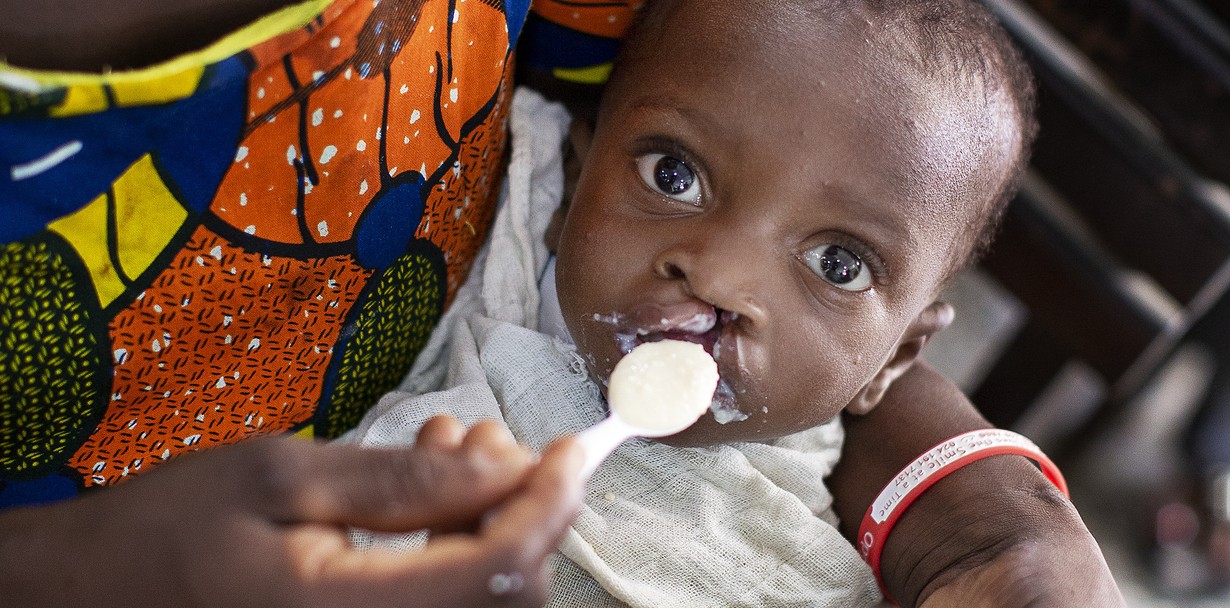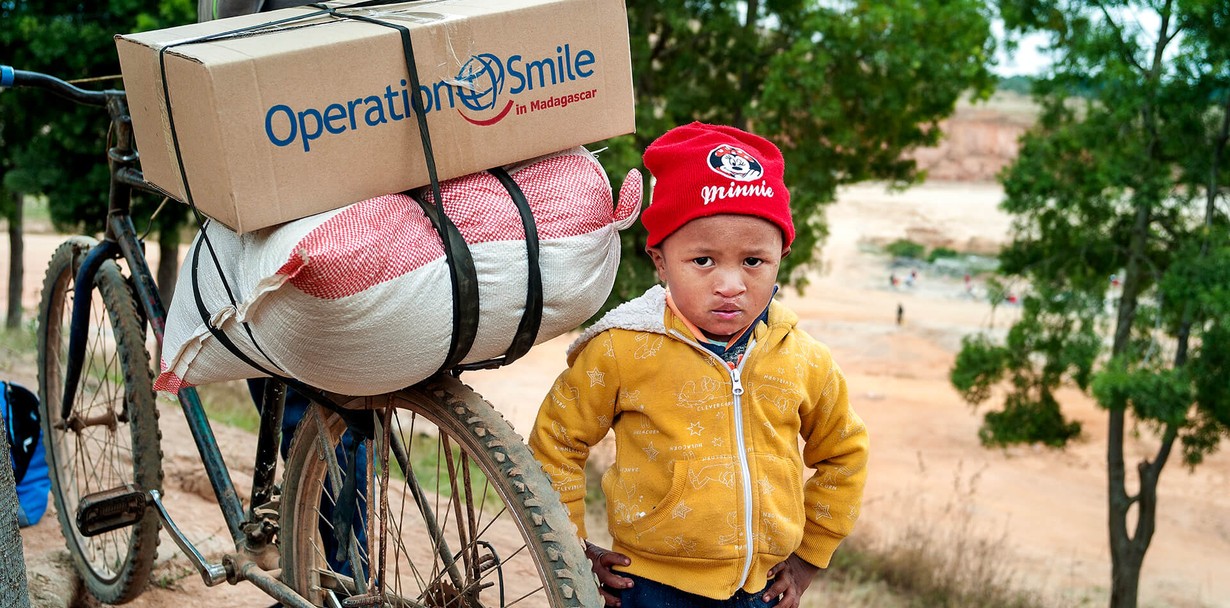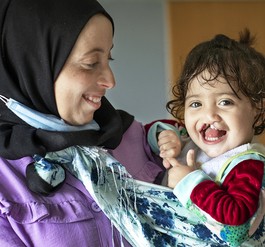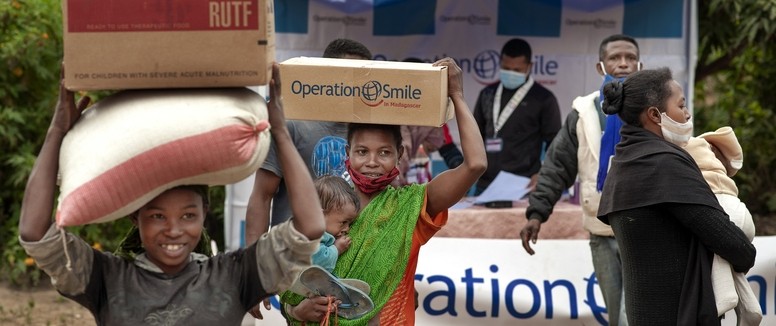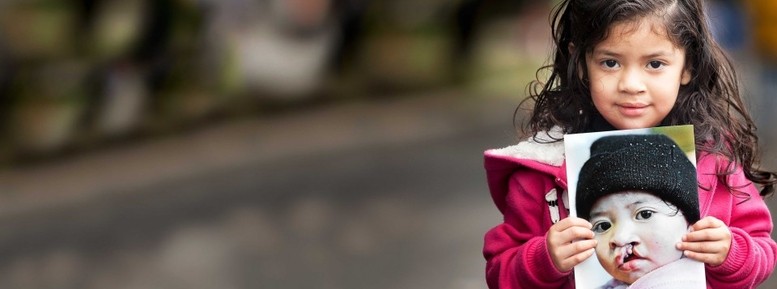Through our expertise in treating cleft conditions, Operation Smile creates solutions that deliver safe surgery and make a difference in the lives of children and their families. Our commitment to quality care goes beyond surgery. Children born with cleft conditions often require pre- and post-surgery comprehensive care such as dentistry, orthodontics, speech therapy, psychosocial and nutrition.
Malnutrition contributes to the deaths of 3.1 million children less than 5 years old annually, which is 45% of all deaths for that age group. Operation Smile patients are especially vulnerable to malnutrition, due to difficulty eating caused by the cleft condition. Without timely intervention, patients with cleft conditions can suffer significant health problems or even death and are at higher risk of complications from surgery.
Effective nutrition support begins with breastmilk, and today more children are getting the vital care they need.
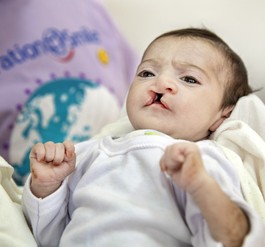
When All Seemed Lost, Hope for Janat Was Found
Compared to the overall population, infants with cleft conditions have nine times the odds of dying within the first year of life. Operation Smile addresses the need for nutritional intervention through global nutrition programs that ensure patients receive safe, timely and effective surgical care. Nutrition and feeding are at the core of our comprehensive care model that aims to support patients' optimal growth and development.
Our commitment to patient care includes providing breastfeeding support. Globally, nearly 600,000 children under 5 years of age die from inadequate breastfeeding each year. Breastfeeding is complicated for infants with cleft conditions. Success can be limited and varies considerably based on the infant’s condition and the support provided to the mother and family.
To successfully support mothers in providing breastmilk for their infants, the following are critical:
- Early identification of infants with cleft conditions.
- Breastfeeding education, including safe breastmilk expression instruction, as early as possible in the perinatal period.
- Distribution of special cleft drinking bottles and formula and ready-to-use therapeutic food.
- Regular follow-up to ensure that the infant grows and gains weight appropriately.
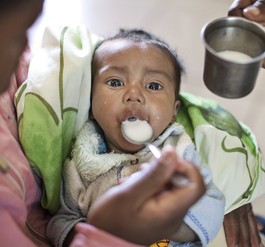
Read the Latest Research
Compared to six countries at the end of 2019, 28 of our program countries now provide nutrition-based programming as of January 2024. This programming includes a variety of context-appropriate solutions based on the six components of our comprehensive nutrition model. Since 2022, 3,154 patients have graduated from Operation Smile nutrition programs and received their cleft lip or palate surgery. However, the work is far from over as Operation Smile plans to provide direct nutrition care to 60,527 patients over the next five years.
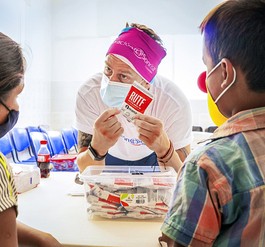
A Historic Shipment is Saving Lives in Colombia
